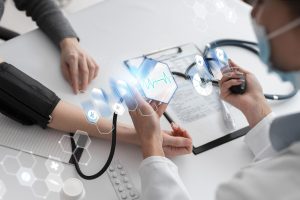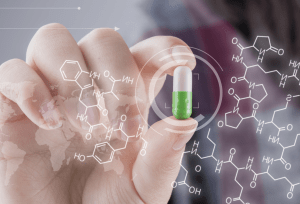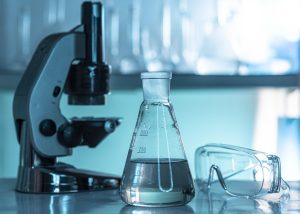As artificial intelligence (AI) translation technology rapidly advances, life science translation is becoming a key driver of transformation in the pharmaceutical industry. AI-powered translation is already making a significant impact in the pharmaceutical industry. Below are some practical cases demonstrating how AI is transforming drug development, regulatory submissions, and clinical trials.
1. Potential of AI in Life Science Translation
In recent years, AI has significantly improved translation quality, particularly through advances in natural language processing (NLP) and deep learning. These technologies have greatly increased translation accuracy and efficiency. The pharmaceutical industry relies on vast multilingual medical literature, clinical trial data, and regulatory documents. Traditional translation methods are often time-consuming and resource-intensive, but AI-powered solutions enable fast and precise processing, offering unprecedented benefits to the industry.
2. AI-Powered Life Science Translation in Drug Development
2.1 Accelerating Literature Review and Information Access
Drug development depends on comprehensive medical literature and clinical trial data. AI-powered translation quickly processes multilingual medical documents, allowing researchers to access the latest global scientific findings. For example, researchers can use AI-driven tools to analyze clinical trial data from different countries in real-time, significantly accelerating drug discovery.
Case: AI-Driven Translation in COVID-19 Research
During the COVID-19 pandemic, pharmaceutical companies and research institutions worldwide needed to share findings rapidly. AI-powered life science translation helped researchers translate clinical trial results, vaccine research, and treatment protocols across multiple languages.
Example: The World Health Organization (WHO) used AI translation tools to disseminate multilingual research updates on COVID-19 vaccines and treatments, ensuring fast and accurate global information sharing.
2.2 Facilitating Cross-Border Research Collaboration
International collaboration is crucial in life sciences, but language barriers often slow down progress. AI-powered translation eliminates these barriers, enabling seamless communication among multinational research teams. During academic conferences and global research exchanges, AI-driven translation provides real-time multilingual support, enhancing communication and knowledge sharing.
3. AI Translation for Regulatory Submissions in Life Sciences
3.1 Enhancing Pharmaceutical Quality Management
Good Manufacturing Practices (GMP) are a core requirement in the pharmaceutical industry. AI-powered life science translation ensures accurate and consistent translation of GMP documents across multiple languages. This guarantees that global pharmaceutical companies maintain uniform production standards and comply with international regulations. AI-driven life science translation also improves internal communication, reducing delays and errors caused by language differences.
Case: AI Translation for GMP Compliance
A US-based pharmaceutical manufacturer expanding into Japan and South Korea had to translate its Good Manufacturing Practices (GMP) documents into Japanese and Korean.
Solution: AI-driven life science translation provided accurate, compliant translations of GMP guidelines, ensuring regulatory approval and seamless manufacturing operations in both markets.
3.2 Supporting Global Drug Registration and Market Entry
Registering and launching drugs in international markets requires multilingual regulatory documentation. AI-powered translation accelerates the translation and submission process, significantly reducing time-to-market. For example, a multinational pharmaceutical company can leverage AI-driven solutions to rapidly prepare registration documents for regulatory agencies in the EU, US, and China, ensuring faster drug approvals.
Case: Faster Drug Approval with AI Translation
A European pharmaceutical company needed to submit its new drug application (NDA) to the China National Medical Products Administration (NMPA). The process required the accurate translation of thousands of regulatory documents, including clinical trial reports, drug safety data, and manufacturing guidelines.
Solution: AI-powered life science translation streamlined the submission process, reducing translation time from several months to a few weeks, ensuring faster regulatory approval and earlier market entry.
4. Efficient Translation of Clinical Trial Documents
4.1 Providing Multilingual Drug Information and Patient Support
In clinical trials, patients must understand drug information, usage guidelines, and potential risks. AI-powered translation enables fast and accurate translation of patient information leaflets, informed consent forms, and consultation materials, ensuring patient safety and adherence. AI-driven solutions also enhance doctor-patient communication, leading to better patient engagement and satisfaction.
Case: AI-Powered Translation for Clinical Trial Recruitment
A multinational pharmaceutical company was recruiting patients in Latin America, Europe, and Asia for a phase III clinical trial of a new diabetes drug. The company needed multilingual translations of patient recruitment materials, informed consent forms, and trial protocols.
Solution: AI-powered life science translation quickly generated accurate, region-specific translations, ensuring that patients fully understood the trial requirements. This increased patient enrollment rates and improved regulatory compliance.
4.2 Advancing Patient Education and Disease Management
AI-powered translation plays a vital role in patient education and disease management. It allows for the rapid creation and distribution of multilingual health education materials, helping patients better understand their conditions and treatment options. AI-driven solutions also expedite the preparation of recruitment materials for clinical trials, facilitating patient enrollment and trial efficiency.
5. Conclusion
These real-world cases highlight how AI-powered translation is revolutionizing the pharmaceutical industry. By improving global collaboration, regulatory submissions, and patient communication, AI-driven solutions are accelerating drug development and enhancing healthcare accessibility worldwide. As AI technology advances, its role in life sciences will only grow, making the industry more efficient, compliant, and globally connected. Industry stakeholders should embrace AI-driven translation to drive scientific progress and innovation.
The future of pharmaceutical research and global healthcare depends on efficient, AI-powered translation. Let’s explore its full potential and revolutionize the life sciences together!
To learn more about how you can implement AI translation language strategies, please reach out to our team.





